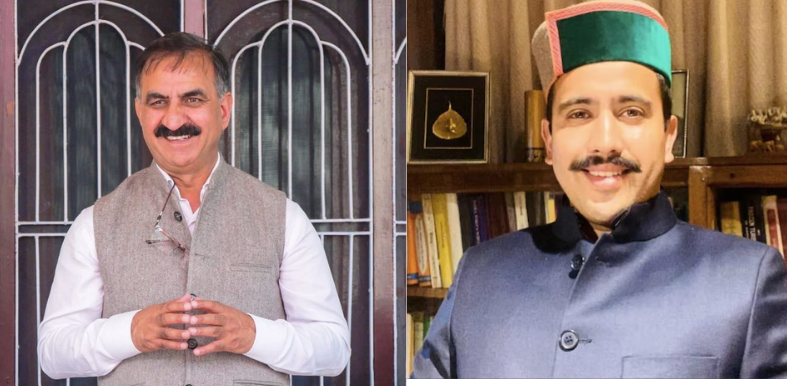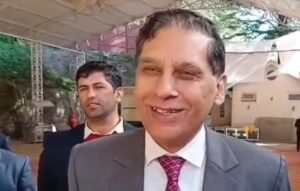How Congress victory in Mandi can change political fortunes for Vikramaditya, Sukhu

MANDI: All eyes are on Himachal Pradesh’s Mandi parliamentary seat as the results of the Lok Sabha elections will be declared on June 4. This seat has become the centre of intense speculation, primarily due to the two high-profile candidates, Bollywood actor Kangana Ranaut from the BJP and minister Vikramaditya Singh, who is the son of the six-term CM late Virbhadra Singh, from the Congress.
Both candidates bring significant recognition and youth appeal to the race, making the Mandi contest particularly compelling.
Vikramaditya is embarking on a new chapter in his political career as the young leader, already a two-time MLA and a cabinet minister, is now vying for a seat in the Lok Sabha. His candidacy from Mandi marks a strategic move by the Congress, aiming to leverage his family’s political legacy.
Vikramaditya’s parents Virbhadra Singh and Pratibha Singh have both represented Mandi in Parliament, with Pratibha Singh currently serving as the sitting MP. This legacy brings added weight to Vikramaditya’s campaign as he seeks to uphold the family tradition of public service.
The political landscape in Himachal Pradesh has shifted dramatically since Vikramaditya entered the fray. Initially confident of sweeping all four parliamentary seats, the BJP now faces a formidable challenge in Mandi.
The election has become a nail-biting contest, with political analysts unable to predict a clear winner. While a potential loss for Kangana Ranaut might not significantly impact her career, given her established success in Bollywood, a victory for Vikramaditya could reshape the state’s political dynamics.
A Vikramaditya Singh victory would mark a turning point in Himachal Pradesh’s politics. The Congress is currently divided into two factions: the Virbhadra and the Sukhu factions. This internal rift has been evident during the 15-month tenure of the current government.
Despite maintaining a low profile, Vikramaditya has expressed his dissatisfaction, while his mother Pratibha Singh has openly criticised the lack of coordination between the government and the party organisation.
This discontent culminated in Vikramaditya’s resignation from his ministerial post, following a dispute over land for his father’s memorial.
The stakes in Mandi are high. If Vikramaditya wins, it could signal a resurgence for the Virbhadra faction within the Congress, potentially altering the balance of power. Such a victory would enhance Vikramaditya’s stature as a mature and influential leader, providing him with a solid platform to strengthen his political career and his family’s legacy. Conversely, a poor performance by the Congress could lead to significant changes within the party, possibly resulting in a new chief minister.
Exit polls suggest that the BJP is likely to win two of the four parliamentary seats in Himachal Pradesh, with Mandi and Shimla being too close to call. A victory for Vikramaditya would not only challenge the BJP’s dominance but also highlight the shortcomings of the current Chief Minister, Sukhvinder Singh Sukhu. Already on the defensive due to internal rebellions, Sukhu’s position could become untenable if the Congress fails to secure a decisive victory.
In the event of the Congress victory in Mandi, discussions about leadership changes are expected to intensify. The party might consider appointing Pratibha Singh or Mukesh Agnihotri as the next Chief Minister. For Vikramaditya, a win would represent a significant milestone, solidifying his role as a key player in state politics and ensuring his family’s continued influence in Himachal Pradesh.




